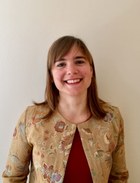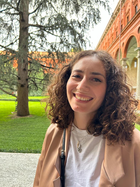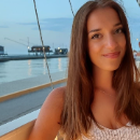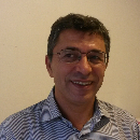Research group

Alessia Tessari
Coordinator - Associate Professor
She holds a Master's Degree in Experimental Psychology from the University of Padua and a Ph.D. in Cognitive Neuroscience from S.I.S.S.A. (International School of Advanced Studies) in Trieste. She carried out research periods abroad to centers of excellence (Institute of Cognitive Neuroscience, UCL, London, CNRS, Lyon, Institute of Medicine, Forschungszentrum Jülich). She is now associate professor at the University of Bologna. Her research focuses mainly on motor learning, planning and execution of the action, the representation of the body (both cognitively and neurally in healthy individuals with brain damage), tool use and the effects of sport on cognitive skills. She also has an interest in evaluating the cognitive aspects in the interaction with ICT, the cognitive/emotional aspects in the human-robot interaction and the embodiment processes (e.g., prosthesis).

Sara Ventura
Affiliate researcher from Spain
Sara Ventura gained a B.Sc in Psychology at the University of Padua (Italy) in 2013 and an M.Sc. in Ergonomic Psychology at the Catholic University of Milan (Italy) in 2015. In 2016, she carried out a postgraduate training at Universidad Nacional Autónoma de Mexico (Mexico) at the Ciberpsychology lab, working on a rehabilitation protocol for brain injury patients through Virtual Reality. In 2020, Sara gained a Ph.D. in Clinical Psychology at Universidad de Valencia (Spain), working with the LabPsitec group and focusing her research on the study of embodiment and empathy with the support of Virtual Reality. Her research interests mainly focus on the adoption of new technologies, particularly Virtual/Augmented Reality and Artificial Intelligence, for the psycho-social wellbeing of clinical and non-clinical populations, the study of human-computer interaction, and the user experience. She is the author of several scientific papers and various presentations at national and international conferences.

Alberto Massimiliano Umiltà
Post-doc
Alberto Massimiliano Umiltà is a cognitive neuroscientist specialized in cognitive map formation and spatial navigation. He completed his Bachelor's degree in Psychology with a specialization in Behavioral Sciences and Social Relations from 2008 to 2011 at the University of Psychology of Cesena, during which he conducted research on "The role of the observer's motor programs in the representation of somebody else's motor actions". He then obtained a Master's degree in Neurosciences and Neuropsychological Rehabilitation from 2011 to 2014 always in Cesena, during which he studied the "Neural basis of visual enhancement of touch". Alberto gained further research experience through internships at Trinity College Dublin, the Institute of Neuroscience, and the Cardinal Ferrari Center in Parma in 2015.
He then completed his PhD in Cognitive Neuroscience at the University of Calgary in Canada in 2021, where he studied the "behavioural and neurological mechanisms of human topographical orientation training in a virtual environment". Over the last year he has completed his post-doctoral research position at the University of Bologna, under the supervision of Dr. Elisa Ciaramelli where he worked mainly on memory and perception.

Giovanni Ottoboni
Senoir assistant professor (fixed-term)
My research interests spread across the domains of clinical and general psychology.
I am interested in improving psychosocial programs of care for frail people. In particular, I am focusing on the ways decision-making processes can improve the services of support to people with dementia and the general improvement of palliative care programs. Moreover, from late 2018, I am co-coordinating an E+ proejct, the SiDeCar project, aimed at developing an Higher Education program on psychosocial care for people with dementia. On the other hand, I am interested in understanding both implicit and explicit mental processes mediating reflexive representations as well as the ones supporting both human-human and human-object interaction.

Cristina Russo
PhD student
Cristina Russo obtained her Bachelor's degree in Cognitive Psychology from Suor Orsola Benincasa University of Naples in 2019. Subsequently, she attained her Master's degree in Psychobiology and Cognitive Neuroscience from the University of Parma in 2022. Cristina completed her postgraduate training at the Brain Imaging Lab of the University of Parma, with a primary focus on analyzing structural and functional connectivity in cortico-cerebellar circuits related to the mirror neuron system. She also gained expertise in applying Action Observation Therapy to functional magnetic resonance imaging (fMRI) studies. Following this, she furthered her education with a Specialized Master's in Clinical and Behavioral Neuroscience at the Catholic University of the Sacred Heart in Milan. During this period, she deepened her knowledge in neuropsychology through an internship at the Cardinal Ferrari Centre (Fontanellato, PR). Her research interests mainly concern the representation of the body in both healthy individuals and patients, motor cognition, and the embodiment processes of prostheses and assistive devices.

Denise Dal Lago
Post-doc
Denise Dal Lago got her master’s degree in Neuroscience and Nauropsychological Rehabilitation from the University of Padua in 2015. Subsequently, she worked as a research assistant at Keele University (UK), investigating decision-making processes and impulse control disorders in patients with Parkinson’s disease. In 2019, she started working as a research fellow at the University of Verona, where she focused on the study of addictions. Between 2020 and 2023, she collaborated as a university tutor in research methods in cognitive psychology at Loughborough University (UK) and obtained the certification of “Associate Fellow of the Higher Education” in 2022. There, in 2024, she completed her PhD investigating attentional bias and perceptual processing in individuals who use substance of abuse. During her studies, she has utilized various techniques and methods, including eye-tracking and EEG.
Currently, she works as a research fellow at the University of Bologna with the Bracco research group.

Filomena Rita Guarino
Postdoc
Research fellow at the University of Bologna, she conducts her research primarily in the fields of cognitive psychology and psychological well-being. Her research interests focus on psychological patterns and on explicit and implicit evaluations related to food, also through the recording of oculomotor parameters, including pupil diameter variations. She is currently also involved in the REWIRE project, an initiative aimed at newly retired individuals, with the goal of promoting their psychological well-being and enhancing their executive functions.
